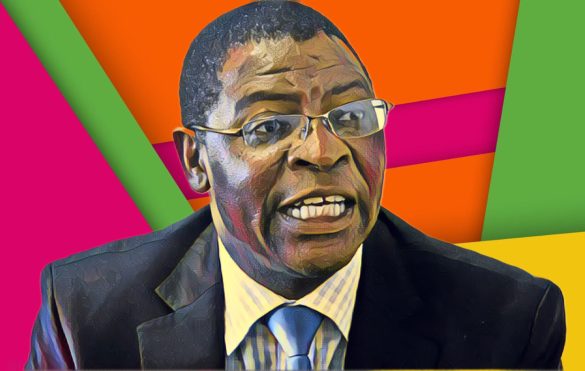In an unfolding drama that has gripped Zimbabwean politics, a significant faction within the Citizens Coalition for Change (CCC), reportedly backed by the party’s erstwhile leader Nelson Chamisa, has vehemently dismissed the recent leadership announcement which proposed Welshman Ncube as the acting president. The announcement, made amidst the party’s turbulent internal dynamics, suggested a unique rotational leadership strategy involving Ncube, Tendai Biti, and Lynnette Karenyi Kore, intended to guide the party over the next 90 days.
This decision has ignited a fierce backlash from a Chamisa-aligned segment of the CCC, casting a shadow over the party’s unity and direction. At the heart of the controversy is the role of Jacob Mafume, newly designated as the spokesperson for CCC, whose legitimacy and actions have come under intense scrutiny by the faction.
The Press Conference Clash
During a press conference held on a recent Sunday, CCC spokesperson Promise Mkwananzi took the opportunity to challenge the legitimacy of the leadership changes, specifically targeting Ncube and Biti, whom he labeled as “rotten apples” attempting to contaminate the party. Mkwananzi’s fierce repudiation of the leadership pronouncement, made from the Holiday Inn in Bulawayo by Jacob Mafume, underscores the deep rifts within the CCC. The faction asserts that these declarations are “null and void,” lacking the collective agreement of the Citizens National Assembly, the party’s ultimate decision-making body.
Newzimbabwe.com recalls that, Mkwananzi’s accusations extended beyond the immediate leadership crisis, implicating Mafume in a broader pattern of misconduct, including alleged associations with Sengezo Tshabangu and unauthorized recalls of elected officials. This critique not only questions Mafume’s authority but also signals potential legal and political repercussions for those within the CCC who align with what Mkwananzi describes as “mischief.”
Chamisa’s Silence and Party Fissures
The leadership upheaval occurs against the backdrop of Nelson Chamisa’s departure from the CCC, citing concerns over infiltration by the ruling Zanu PF party. Chamisa’s silence on his future political endeavors has left a vacuum within the CCC, exacerbating tensions and uncertainties about the party’s trajectory.
In response to the leadership controversy, Mkwananzi highlighted ongoing efforts by Ostallos Siziba and Amos Chibaya to engage with provincial bases, emphasizing a unified approach to navigating the party’s internal transition. Despite the apparent discord, Mkwananzi’s statement aims to reassure the public of the CCC’s cohesive strategy moving forward, challenging narratives of division and strife propagated by detractors.
The Broader Political Landscape
The CCC’s internal discord comes at a critical juncture for Zimbabwean politics, as the opposition party seeks to consolidate its position against Zanu PF’s longstanding dominance. The leadership dispute not only threatens the CCC’s internal cohesion but also its ability to present a united front in challenging the ruling party’s policies and governance.
As the CCC navigates these tumultuous waters, the broader implications for Zimbabwe’s democratic process and opposition politics are profound. The resolution of this leadership crisis will not only shape the CCC’s future but also influence the opposition’s capacity to articulate and advocate for change within Zimbabwe’s complex political landscape.
Looking Ahead
The unfolding drama within the CCC underscores the challenges facing opposition parties in Zimbabwe, where internal divisions can undermine efforts to challenge entrenched political powers. As the party strives to move beyond this crisis, the focus will inevitably shift to how it can reconcile internal differences, redefine its leadership structure, and reengage its support base ahead of crucial political milestones
For observers and supporters alike, the CCC’s ability to navigate this challenging period will be a litmus test for its resilience, adaptability, and commitment to the principles of change and democracy it espouses. The outcome of this internal conflict will not only determine the party’s immediate future but also set the tone for opposition politics in Zimbabwe, signaling the possibilities for unity, renewal, and resistance in the face of adversity.


